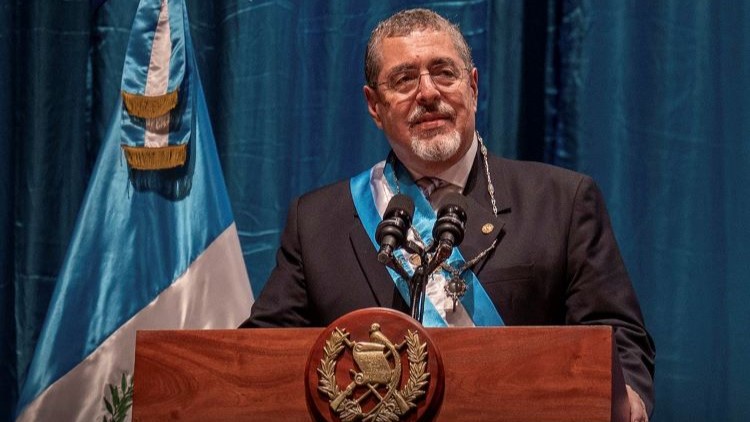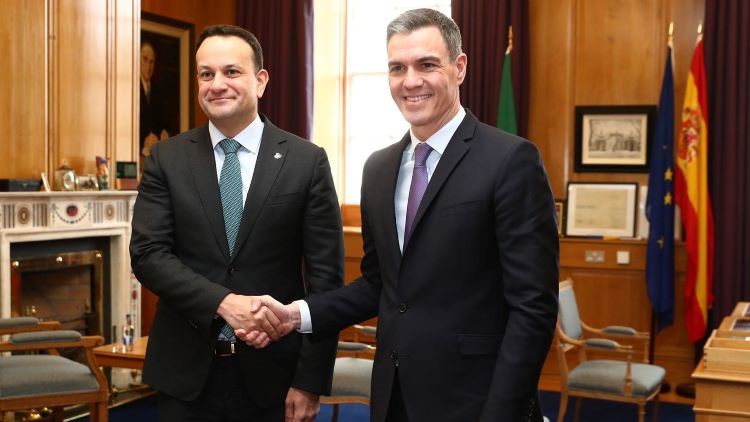Eduardo González
This past Tuesday, the Council of Ministers submitted to the Cortes Generales (Spanish Parliament) the Agreement between Spain and Guatemala regarding the regulation and management of labor migratory flows between both States, while authorizing the expression of Spain’s consent to be bound by said agreement.
The objective of this agreement, according to the Government, is to “regulate in an orderly and coherent manner the existing labor migration flows between Spain and Guatemala, deepen the general framework of cooperation and friendship between the two countries and prevent irregular immigration.”
The Guatemalan authorities had expressed their interest in signing a circular migration agreement with Spain since mid-2021 and, “from a political perspective, it was considered that the agreement was of interest, given that labor migration can contribute to economic and social development, promote cultural diversity and promoting technology transfer,” explained the Council of Ministers.
The agreement was signed ad referendum on January 18, 2023 in Madrid, during the visit to Spain of the former Minister of Foreign Affairs of Guatemala, Mario Búcaro, accompanying the then Guatemalan president, Alejandro Giammattei. The ad referendum signature of the agreement was subsequently approved by the Council of Ministers on May 3, 2023, including its referral to the Parliament. However, the dissolution of the Chambers and the formation of a new Parliament as a result of the early legislative elections of July 23 have forced the text to be sent again to the Cortes Generales.
In addition to Guatemala, Spain has signed migration agreements with the Dominican Republic (2001), Ecuador (2001), Colombia (2001) and Honduras (2021). Likewise, several circular migration programs have been launched that have allowed the arrival of thousands of temporary workers to Spain from these countries. In addition to these bilateral agreements, Spain has developed a program for highly qualified workers from Colombia and Central America.
According to data recently collected by the Diplomatic Information Office (OID), it is estimated that Guatemala would need to create more than 200,000 jobs annually to absorb new additions to its labor market. For this reason, the country suffers a serious problem of irregular migration. The number of Guatemalan migrants in the US, for example, exceeds three million. Precisely, Spain, the United States and Canada reached an agreement in June 2022 to facilitate regular labor migration from South and Central America, which has made it possible to reinforce the aforementioned international programs to promote regular migration that Spain has with the Dominican Republic. , Ecuador, Colombia, Honduras and Guatemala.
Arévalo’s visit to Spain
The decision of the Council of Ministers comes a few days before the new president of Guatemala, Bernardo Arévalo de León, makes an official visit to Spain as part of his first tour of Europe since taking office on January 14. As Arévalo himself explained in a press conference on February 8, the visit to Spain responds to the invitation that King Felipe VI extended to him during his trip to Guatemala on the occasion of the inauguration of the new president.
The visit to Spain will take place from February 21 to 23 and will include an interview with the King, with whom “the issues on the bilateral agenda” will be discussed, as explained by the president at the press conference. The rest of the agenda in Spain has yet to be defined, according to the Social Communication Secretariat of the Guatemalan Executive, but it seems certain that Arévalo will be received by the King and the President of the Government, Pedro Sánchez, on February 22.
Likewise, Arévalo will participate in the Spain-Guatemala Business Meeting, organized on February 23 in Madrid by the Spanish Confederation of Business Organizations (CEOE), the Secretary of State for Commerce and the Chamber of Commerce of Spain, in collaboration with the Embassy of Guatemala in Spain.
Last December, the Spanish Government expressed its support for Arévalo after the actions of the Public Ministry of Guatemala to prevent his arrival to the Presidency, considering that they attacked “against democracy” and represented “a serious violation of the will of the people.” Guatemalan language freely expressed at the polls,” which is why he demanded that “all Guatemalan institutions respect the results of the polls and guarantee the peaceful transfer of power.”
On the eve of the investiture, Felipe VI conveyed to Arévalo Spain’s commitment to maintaining and strengthening its cooperation with Guatemala. Finally, the Monarch (like other invited leaders) was forced to imprison Spain without being able to attend the investiture ceremony, which suffered a significant delay due to the attempts of several parliamentarians to paralyze the process until the very day of the taking of possession.







